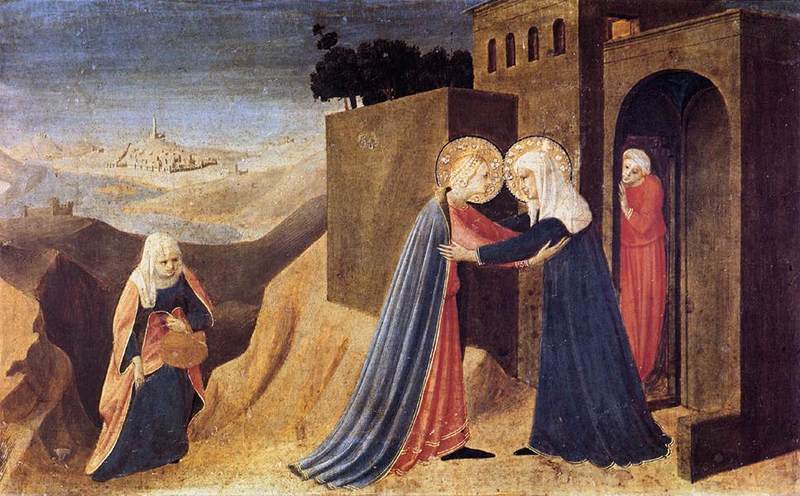This feast is one of the reasons I love the Blessed Virgin. Having given her fiat – her “yes” – to God, she now shows concern for her elder relative who is also with child. She goes to visit her in a great act of hospitality, which is one of the virtues Paul admonished the Romans to follow in our first reading today. Perhaps because of her faith and her great concern for Elizabeth, Elizabeth’s own child begins to rejoice in the womb, recognizing his Lord and the great woman who would bring him to human life.
While we don’t have an exact account of what happened at that visit, we do have the Church’s recollection of its spirit, as told through Luke the Evangelist. The whole feeling of this Gospel story is one of great joy, which is perhaps why this is one of the joyful mysteries of the holy Rosary. Both Elizabeth and Mary represent the Church in the telling of the story. Because just as Elizabeth was moved by the faith and generosity of Mary, so the Church continues to be edified by her example of faith and charity. And just as Mary rejoiced in what God was doing in her life, so the Church continues to rejoice at the mighty acts of God in every person, time and place.
The Gospel reading ends with the great song called the Magnificat which is Mary’s song of praise to God for the wonders he has done throughout all time, but also in her own life. We too should make that our own song as we continue to be overjoyed by the great acts of God, shepherding us all through our own lives, and intervening in our world and society to bring grace to a world darkened by sin. We, too, can pray with Mary, “From this day all generations will call me blessed: the Almighty has done great things for me, and holy is his Name.”
